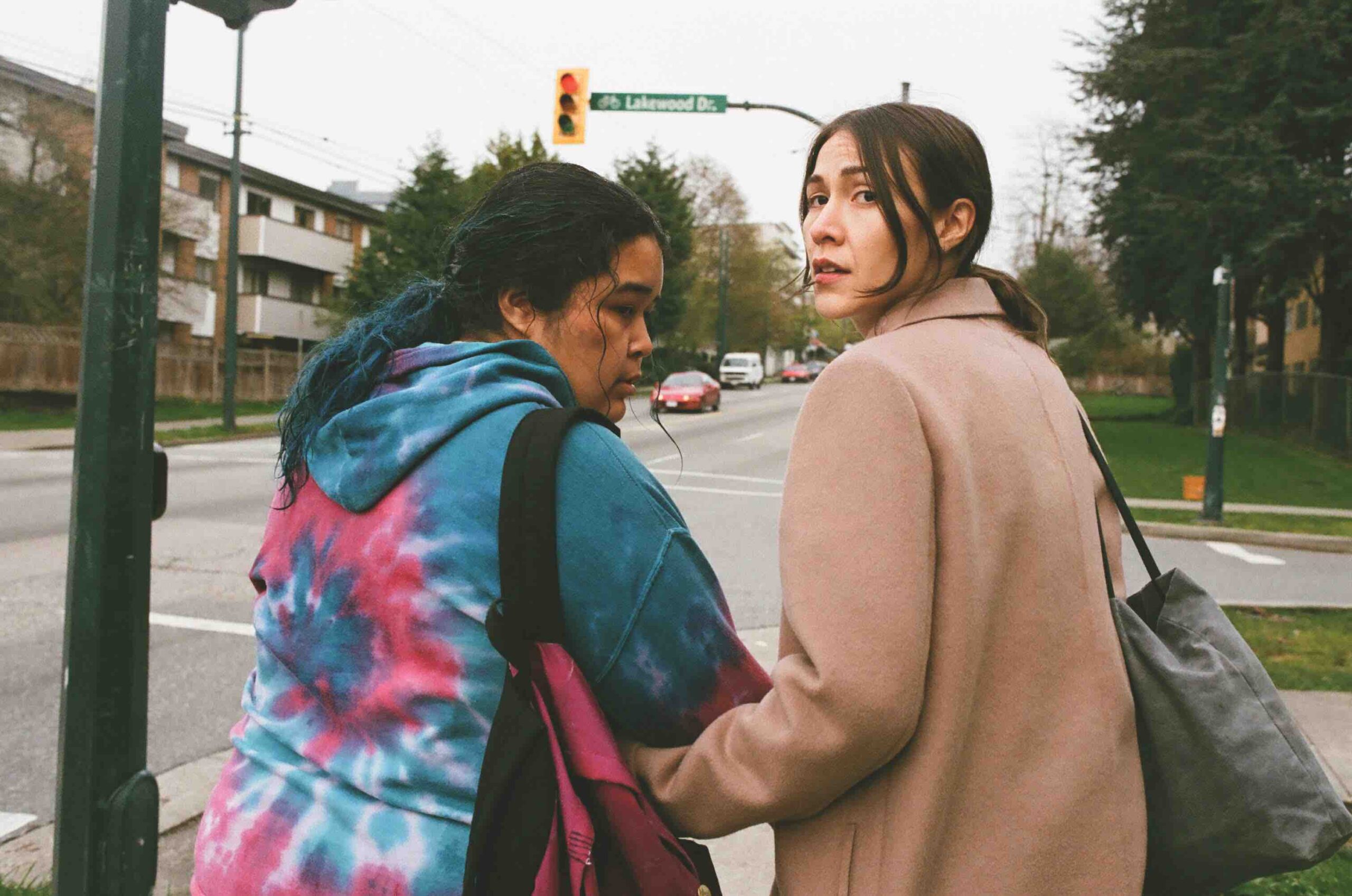“Can I help you?” That question may seem innocuous due to its overuse by shop clerks and baristas, but it sparks an extraordinary story in The Body Remembers When the World Broke Open, a new film by British Columbia based directors Elle-Máijá Tailfeathers and Kathleen Hepburn.
Tailfeathers, an actor, writer and filmmaker from Kainai First Nation, stars on screen as Áila, a Vancouver woman who’s moved to offer help when she encounters Rosie (played by Violet Nelson) while returning from a medical procedure. Rosie is pregnant, with fresh bruises on her face and no shoes on her feet. Áila spirits her away from the enraged boyfriend still shouting from down the street, and the two women take refuge in Áila’s apartment.
This offer of assistance initiates a complex and deeply human interaction that subtly reveals the two characters’ experiences and histories as Indigenous women. The middle-class trappings of Áila’s apartment and personal appearance may seem to suggest she has little in common with Rosie, who grew up in foster care and is accustomed to the police ignoring her “like they’re tired of looking at you, like you’re wasting their time,” she says. But we soon learn that the two women have similar stories: long cycles of family hardship and trauma perpetuated by poverty and institutionalized racism.
The Body Remembers When the World Broke Open effectively portrays the lingering effects of colonization on these two women, but the film’s real power lies in its intimacy, fostered by the filmmakers’ unusual use of long takes and real-time storytelling to keep viewers engaged and invested. There’s no safe distance between us and the pain, bewilderment and sadness that pass between Áila and Rosie, and that makes the film’s moments of empathy all the more resonant.
This review first appeared in Broadview’s January/February 2020 issue with the title “Chance encounter.”















